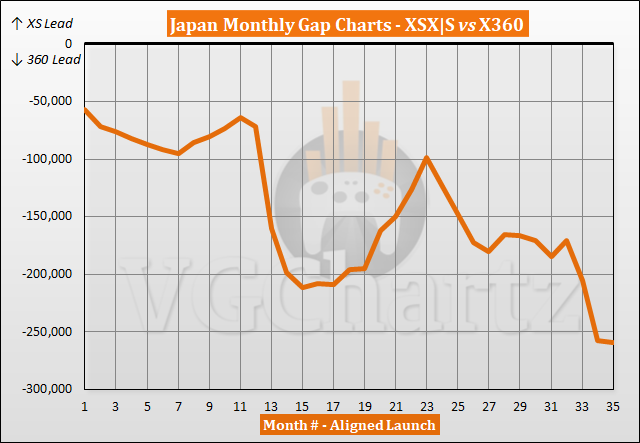One of the lesser-sung items among umpteen offbeat little ’70s movies was Larry Yust’s “Homebodies.” That 1974 black comedy on the cusp of horror was about a community of frail old retirees who turn out to be surprisingly vigorous — even homicidal — in defending their homes from the callous forces of market-driven “progress.” A similar premise is the starting point for “Bingo Hell,” which alongside “Black as Night” kicks off the second quartet of genre features premiering under the “Welcome to the Blumhouse” umbrella on Amazon Prime. This first full-length solo directorial project for Gigi Saul Guerrero exchanges the Cincinnati grit of “Homebodies” for the hotter palette of a Southern California desert town.
The comedy and horror elements get amped up as well — maybe too much so. In any case, what starts out looking like another caustic commentary on gentrification at the expense of the elderly soon takes a turn into half-baked Stephen King territory, as a requisite Mysterious Supernatural Stranger in Town proves the real menace here. He’s an ill-defined evil, however, stirring scant real suspense as Guerrero emphasizes a cartoonish tenor of satire whose precise point is also rather murky. The result is fun for a while. But with its few thematic and narrative ideas left underdeveloped, this “Hell” feels attenuated even at just 85 minutes.
Oak Springs has clearly seen better days, with every other house up for sale and long-term businesses closing down. Holding things together in her loudmouthed way is Lupita (Adriana Barraza of “Babel”), a busybody who presides over the town as a whole, and in particular a social circle of no-longer-youthful peers: Hair stylist Yolanda (Bertila Damas), auto mechanic Clarence (Grover Coulson), handyman Morris (Clayton Landey) and recently widowed Mario (David Jensen). They’re all bored in this increasingly lonely burg, tempted by developers’ home-purchase offers. (A lone hipster cafe suggests that gentrification is indeed afoot.) The only one will a full plate is Lupita’s BFF Dolores (L. Scott Caldwell). And her lot is no joy, as she’s stuck housing an absent son’s trashy, ungrateful wife (Kelly Murtaugh) and a grandson (Joshua Caleb Johnson) who’s drifting towards delinquency.
At least these half-dozen geezers unquestionably rule each night at the local bingo hall. It is thus a rude shock when it turns out Mario — who’s already been conspicuous in his absence all day — has apparently sold the place to “new management.” Lured by omnipresent flyers, the populace files in that evening to find the rechristened “Mr. Big’$ Bingo” emporium has undergone a glitzy makeover. And Mr. B himself (Richard Brake) is a sharp-suited, shark-grinning MC who promises outrageous cash prizes.
Alas, his generosity is more of a siren call, hypnotically leading residents to their doom. Winners soon expire in a puddle of material-gain fantasies, green goo and grievous self-harm. These scenes are not very frightening, or even explicable. But they really pour on the fish-eye lensing, lurid lighting schemes and busy editing that Guerrero overindulges whenever something bad is happening.
Just what is that “something,” anyway? Who is Mr. Big? He’s given no backstory or mythology, and seems to be punishing people for greed that he artificially instilled in them. Besides, why shouldn’t these barely-scraping-along folk enjoy the notion of prize money? There are echoes of classic Stephen King baddies (especially “Needful Things”) in Big’s arrival from nowhere as a diabolical tempter. But despite his voiceover confession that “we feed desperate souls,” he ultimately proves pretty weak as any kind of demonic force — indeed, he gets his butt whupped by a bunch of senior citizens.
Guerrero and frequent collaborator Shane McKenzie brought in Perry Blackshear (of “The Siren” and “They Look Like People”) to help “further shape the story,” according to press notes. Yet there still isn’t enough story here, just a premise that doesn’t develop simply by being illustrated in broad, effortful fashion. Nor by ending with crudely inspirational dialogue informing us that as ever, “It’s about family.” Well, there’s nothing like a little gratuitous sincerity after a great deal of inexplicable green glop.
The actors are game enough, though their scenes are often too shrilly pitched. The normally impressive Barraza is pushed so far over the top from the start, her performance has nowhere to go. While we’re meant to root for Lupita, she is a bit too convincingly insufferable.
“Bingo Hell” is lively, albeit in ways that tend to wear thin fast: Funhouse compositions in lurid colors, a cash register ka-ching! as repetitive sonic punctuation, campy musical soundtrack choices, elders saying rude things, etc. It works hard stylistically to provide a good time. But that would have been a better bet had at least as much effort been put into a screenplay whose ideas, both comic and macabre, remain undernourished.
optional screen reader
Note: This article have been indexed to our site. We do not claim ownership or copyright of any of the content above. To see the article at original source Click Here











/images/63d6cef4/0064/42ba/9bac/28d909146532.jpg)

